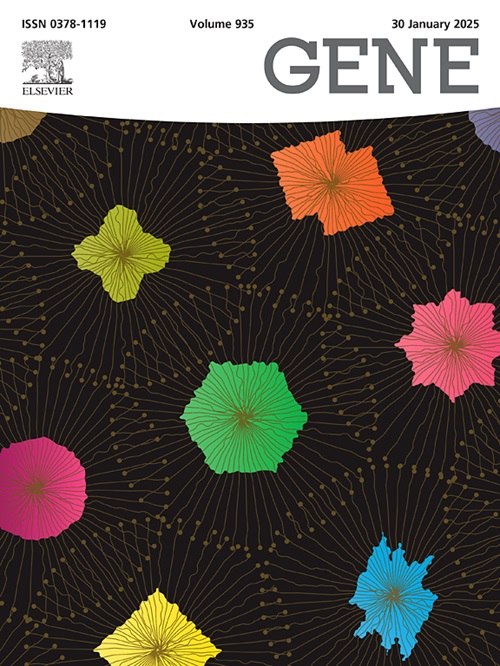Epigenetic activation of PTEN by valproic acid inhibits PI3K/AKT signaling and Burkitt lymphoma cell growth
IF 2.6
3区 生物学
Q2 GENETICS & HEREDITY
引用次数: 0
Abstract
Histone deacetylase (HDAC) inhibitors show promise in treating Burkitt lymphoma (BL), although the precise mechanisms remain unclear. We investigated the effects of valproic acid (VPA), a specific HDAC inhibitor, on BL cell lines RAJI and CA46, focusing on the PTEN/PI3K/AKT pathway. Cell viability, cell cycle progression, and apoptosis were evaluated using the Cell Counting Kit-8 assay and the Annexin V-fluorescein isothiocyanate assay. Chromatin immunoprecipitation sequencing (ChIP-seq) assessed acetylation at the PTEN promoter, while gene expression and protein levels were measured via reverse transcription quantitative polymerase chain reaction and Western blotting, respectively. VPA treatment significantly reduced BL cell viability and induced apoptosis and cell cycle arrest in a dose-dependent manner. Compared to peripheral blood mononuclear cells, BL cells exhibited significantly higher HDAC mRNA and protein levels. ChIP-seq analysis revealed increased acetylation of the PTEN promoter following exposure to VPA. After treatment with 4 mM VPA, PTEN protein levels in BL cells increased significantly, while levels of HDAC, p-AKT, and p-p70S6K proteins decreased markedly. Furthermore, compared to VPA treatment alone, the combination of VPA and the PI3K inhibitor BEZ235 led to even greater PTEN protein expression, further decreased p-AKT and p-p70S6K protein levels, and further reduced cell viability in BL cells. VPA exerts its antitumor effects in BL cells by modulating the PTEN/PI3K/AKT pathway through the inhibition of HDAC1.
求助全文
约1分钟内获得全文
求助全文
来源期刊

Gene
生物-遗传学
CiteScore
6.10
自引率
2.90%
发文量
718
审稿时长
42 days
期刊介绍:
Gene publishes papers that focus on the regulation, expression, function and evolution of genes in all biological contexts, including all prokaryotic and eukaryotic organisms, as well as viruses.
 求助内容:
求助内容: 应助结果提醒方式:
应助结果提醒方式:


